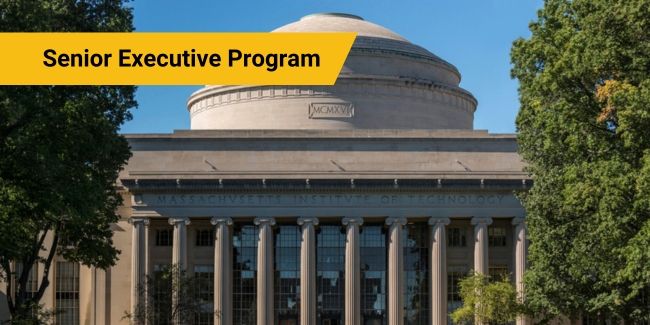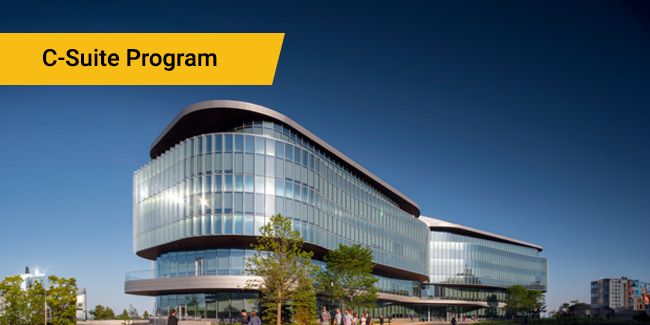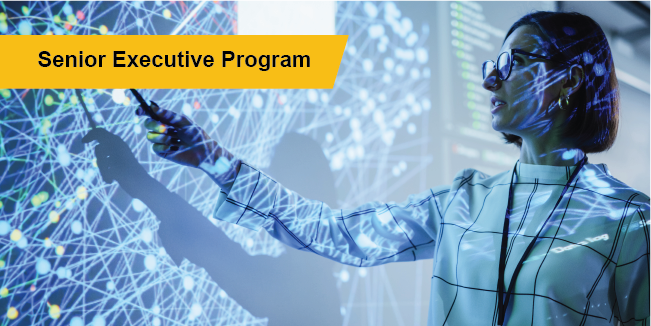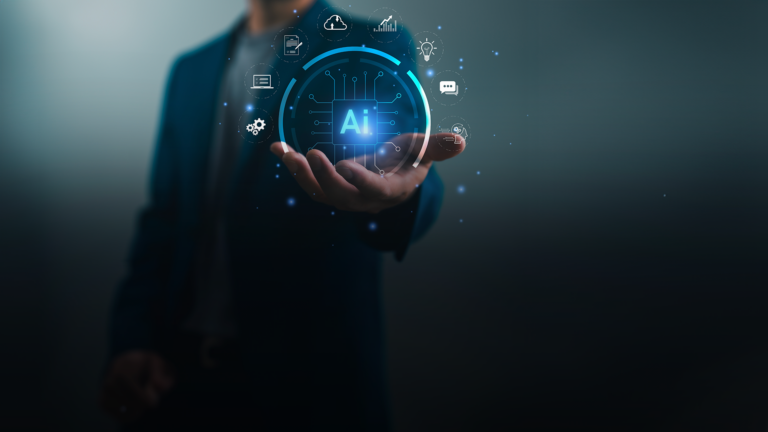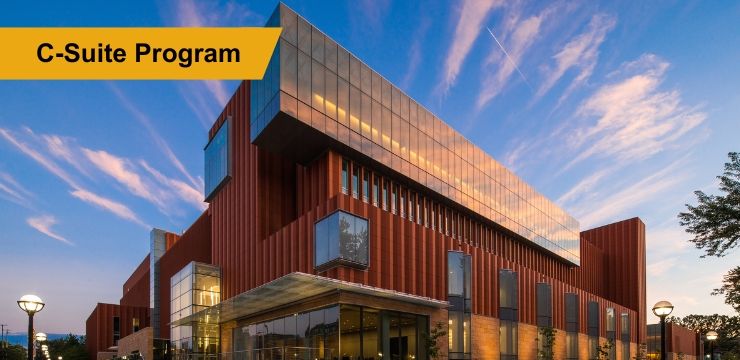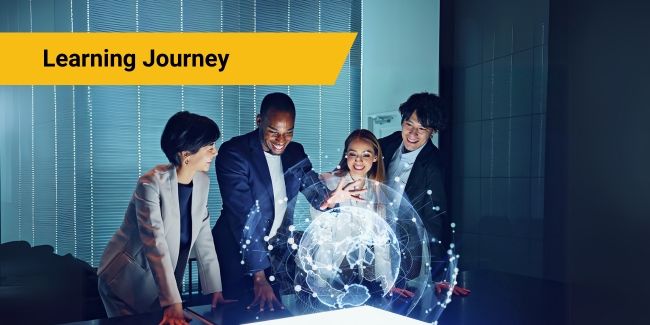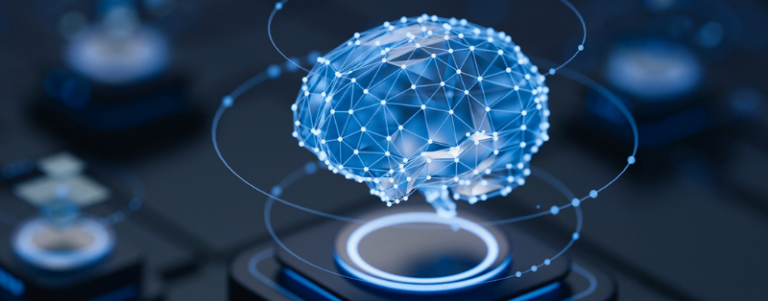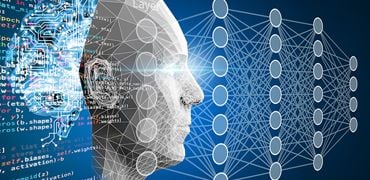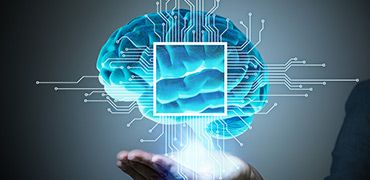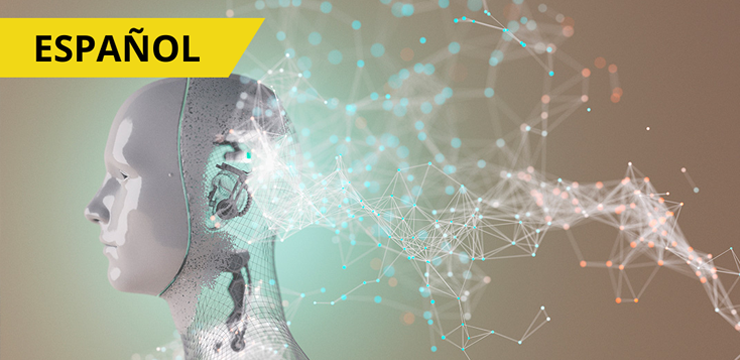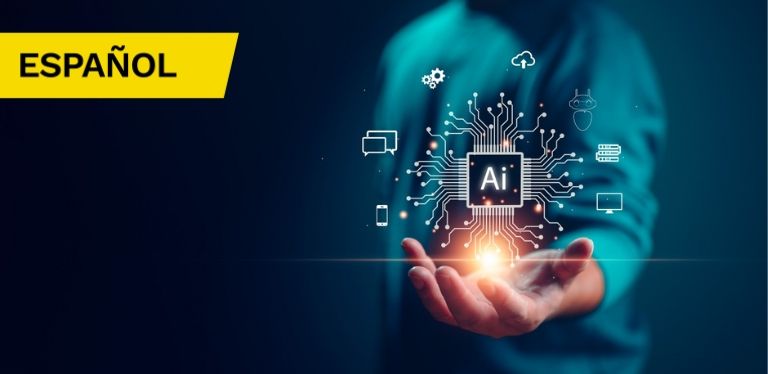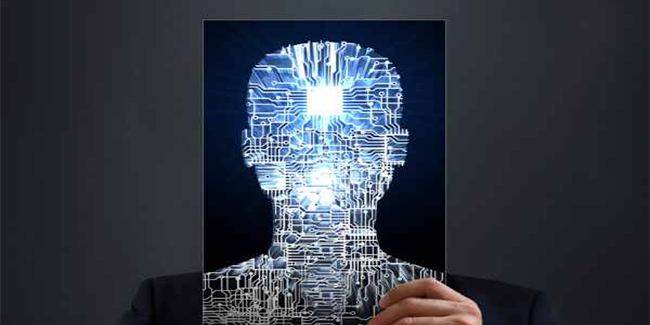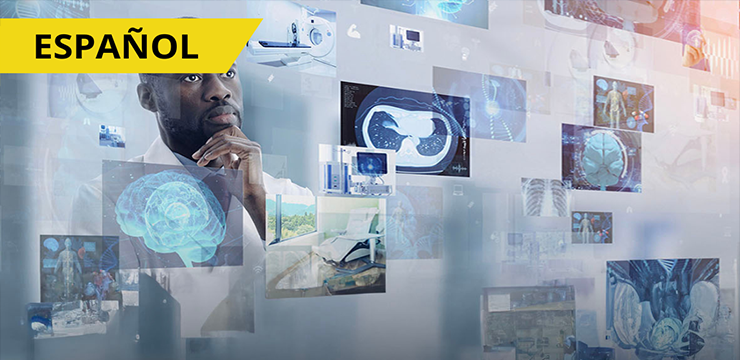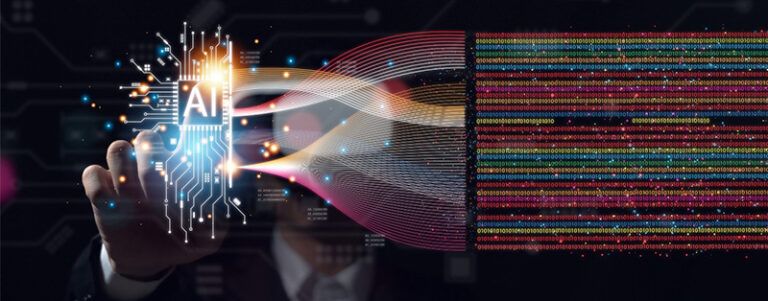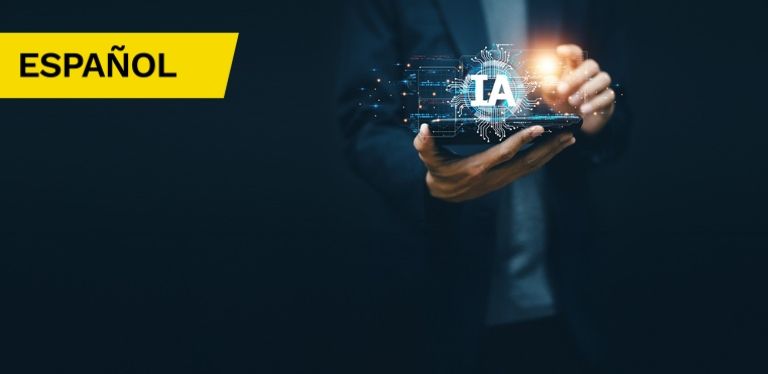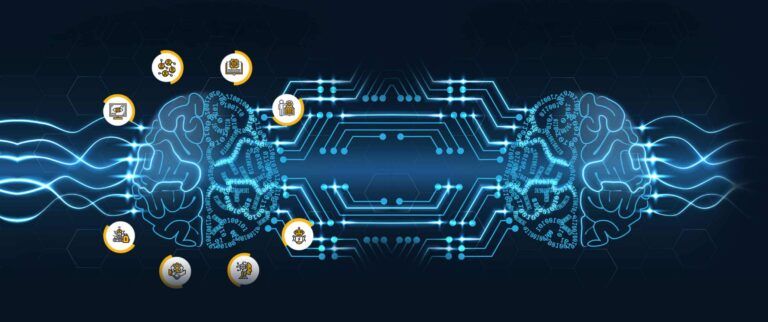Leverage Your Human Edge in the Age of AI Leadership
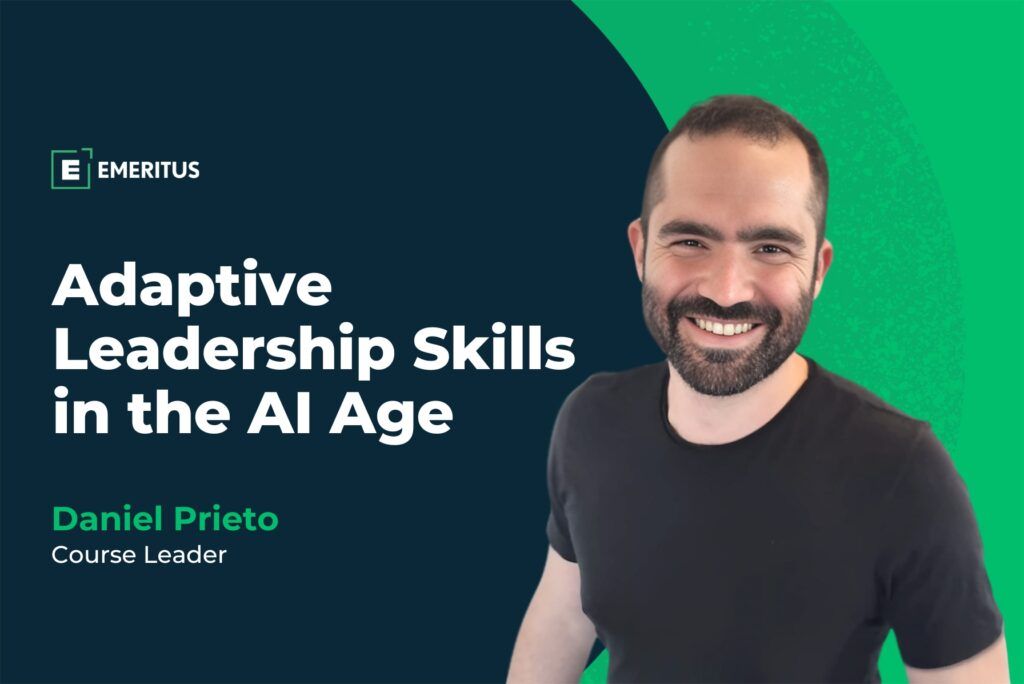
|
Summary: Daniel Pietro, a course leader for the Kellogg Professional Certificate in Digital Marketing program, shares how adaptive skills such as emotional intelligence, resilience, and a growth mindset empower leaders to maintain their edge in the AI age. |
While many leaders debate whether AI systems will replace human workers, a more useful question than “Will AI replace me?” is: “What’s my irreplaceable edge—and how do I sharpen it?”
In my experience, it’s not about choosing between human and technical skills. You need both. But if you’re leading in an AI-enabled world, your real leverage comes from something else: your adaptive skills to embrace AI in leadership.
We’re talking about soft skills—growth mindset, emotional intelligence, and resilience. The stuff that’s hard to measure, easy to overlook, and absolutely foundational. These are the skills that help you lead through complexity, connect with people, and keep evolving when the ground shifts beneath you.
And here’s the kicker: They’re also what help you learn new AI tools faster, make better decisions, and stay relevant.
AI in Leadership: The Human Edge in Action
Let me show you what this looks like in practice.
In 2007, Brian Chesky wasn’t a coder or an engineer. He was an industrial designer who couldn’t pay rent. So he and his roommate decided to rent out air mattresses in their apartment during a design conference. That scrappy idea became Airbnb.
Most investors said no. Why? Because Chesky wasn’t technical and didn’t have a technical team either.
But he had something more valuable: exceptional adaptive skills. He obsessed over the human experience. He interviewed hosts and guests. He mapped the customer journey. He realized Airbnb wasn’t selling a website—it was selling the idea of belonging.
That mindset of implementing AI in leadership turned a side hustle into a $100 billion company.
Why Adaptive Skills Matter More Than Ever in the AI Age
This isn’t just a great story. It’s a pattern showing how AI in leadership benefits from deeply human-centered insight and creative problem solving.
According to the World Economic Forum, humans will still be at the center of 66% of workplace tasks by 2030—either independently or augmented by AI.1 This means that while AI will handle more routine tasks, the majority of meaningful work still requires distinctly human capabilities.
And the skills that will matter most? Adaptive ones.
Here’s why:
- They drive real results
The best leaders don’t just “know the tech.” They can make informed decisions, influence teams, boost collaboration, and move people toward a shared goal. McKinsey found that companies with emotionally intelligent managers outperform peers by 3x in total shareholder return.
2. They unlock learning
A growth mindset is what keeps you from getting stuck. Resilience is what gets you through the hard parts. Self-awareness helps you choose the right things to learn in the first place. And part of that learning? It’s knowing when to invest in yourself—whether that’s working with a coach, taking on stretch assignments, or enrolling in an executive education program that challenges how you think, lead, and make decisions in an AI-driven world.
3. They are the future
By 2030, nearly half of all core workplace skills will be soft skills, such as collaboration, adaptability, and continuous learning. In a world of AI integration, soft skills such as human judgment, creativity, and relationship management matter more than ever.
My Own Story
I started out as an engineer, learned to code, and moved into consulting. Then into general management. Then entrepreneurship. At every transition point, I assumed my technical knowledge would be the thing that carried me, but it wasn’t.
My most valuable skills and contributions shifted from technical problem-solving to understanding human dynamics, building trust with clients, and navigating complex organizational challenges.
What made the difference was this: the resilience to try something unfamiliar, the emotional intelligence to build trust across cultures, and the humility to learn what I didn’t know yet.
That’s the real edge. And it’s even more valuable in a world shaped by AI’s impact.
Four Ways To Future-Proof Yourself in the AI Era
1. Dedicate 10% of your time to growth—half of it to adaptive skills
If you’re only performing and never developing, you’re falling behind. Block at least 10% of your time for growth. Of that, invest half in building soft skills.
Why? Because those are the durable skills. Today’s AI tools will be obsolete in five years. But your ability to lead through change and connect with people? That’s going to compound.
Try this:
Set aside four hours a week. Spend two hours working with a coach on something such as managing stress during change or improving influence in tough conversations. Spend the other two hours learning how AI in leadership is shifting your industry or gaining hands-on experience with data-driven analysis and AI systems.
2. Map your AI-enhanced strengths and collaboration gaps
The leaders who thrive in this era won’t compete with AI—they will collaborate with it.
Ask yourself:
- What do I already do well that AI can amplify?
- Where do I need to get better at working with AI?
Example: Imagine you’re leading frontline employees through a transition to a hybrid service model. Your strength is building trust and influencing people through difficult changes. Instead of spending hours creating change management presentations, generating impact metrics, or drafting communication plans, leverage AI tools, such as AI agents, to handle these tasks—analyzing adoption data, creating stakeholder updates, and drafting initial communications.
This frees you to focus on what only you can do: critical one-on-one conversations, enhancing team dynamics, addressing individual concerns, and building the personal trust that makes change stick.
Then look at your gaps: Are you prompting AI well? Are you blindly accepting its output? Are you hesitating to apply your own judgment? Build those collaboration muscles deliberately.
Create a development plan that strengthens your AI collaboration skills—perhaps learning to create better prompts, developing an AI agent, or using judgment about when to override AI recommendations—while maximizing opportunities to apply your enhanced influence capabilities.
3. Build a growth mindset—and practice it
A growth mindset isn’t a motivational quote. It’s a capability you can train to enable continuous adaptation of AI in leadership: learning from feedback, embracing challenges, and viewing failures as learning opportunities.
Start with language: Swap “I don’t get it” with “I don’t get it yet.” That one word—“yet”—literally rewires your brain’s response to difficulty. It tells your nervous system, “This isn’t a threat. It’s a challenge.”
Then act accordingly. Seek feedback. Try new tools. Make small bets. Learn publicly.
4. Enroll in an executive education program that stretches you
Sometimes growth requires more than just learning on the job—it requires stepping outside your day-to-day, zooming out, and being challenged to think bigger. That’s where executive education comes in.
Whether you are deepening your strategic thinking, leveling up your digital fluency, or learning how to lead in complex, AI-augmented environments, the right program can fast-track your development. It gives you frameworks, feedback, and access to a global peer network—all while forcing you to articulate your leadership philosophy in a changing world.
I have seen this firsthand through the course I lead, the Kellogg Professional Certificate in Digital Marketing. Regardless of the program you decide on, the focus is simple: Build the adaptive skills and business acumen the future demands.
Coaching Makes It Stick
One of the fastest ways to build adaptive skills in the AI age? Get a coach.
At Yourney, the company I co-founded, over 90% of direct supervisors reported real shifts in team members’ leadership effectiveness and learning agility after coaching. Not just soft stuff—technical learning, decision-making, and performance improved, too.
That’s what happens when you invest in your adaptive edge. Everything else gets easier.
How To Stay Ahead in the AI Race
Brian Chesky didn’t beat the odds because he knew how to code. He did it because he had empathy, vision, and the courage to act on what he saw.
That’s your playbook.
Don’t worry about keeping up with every AI in leadership trend. Instead, build the human foundation that allows you to adapt to whatever comes next.
Because the real question isn’t “Will I need to learn new tech?” You will.
The question is: “Will I have the skills to learn it fast, apply it wisely, and lead with it in ways no machine ever could?”
What would you do if you had no fear?
How will you use this era of AI possibility to become the kind of leader only you can be?
(Daniel Prieto is the former course leader for the Kellogg Professional Certificate in Digital Marketing program. All views expressed here are his own.)
References:

